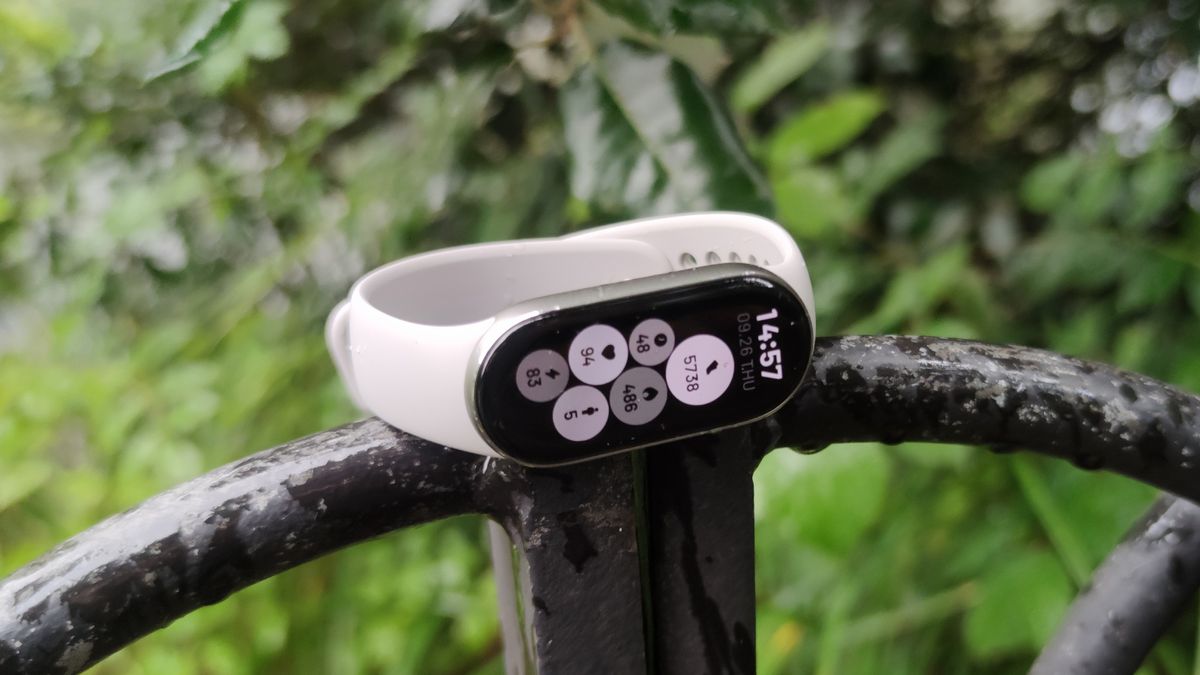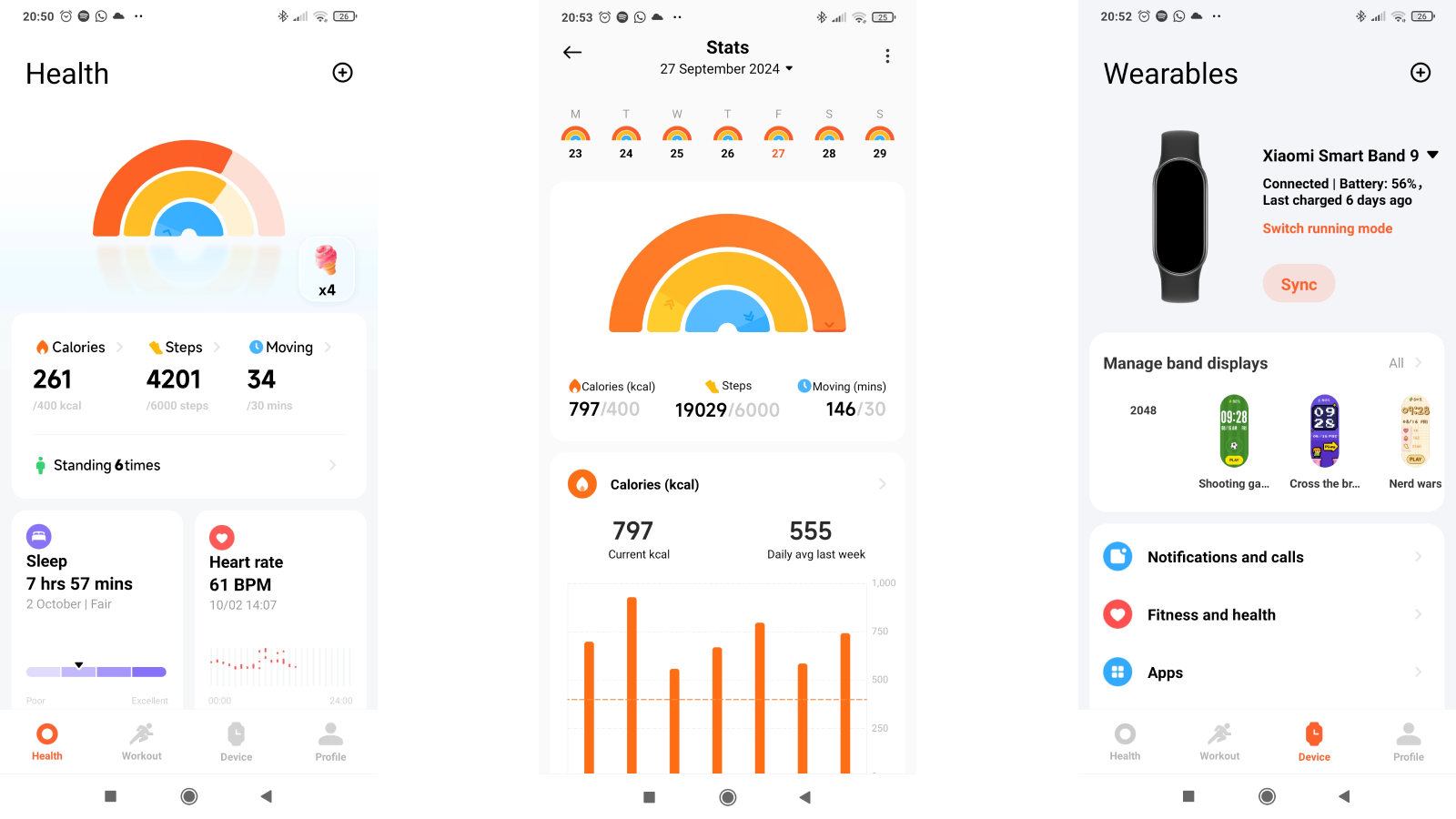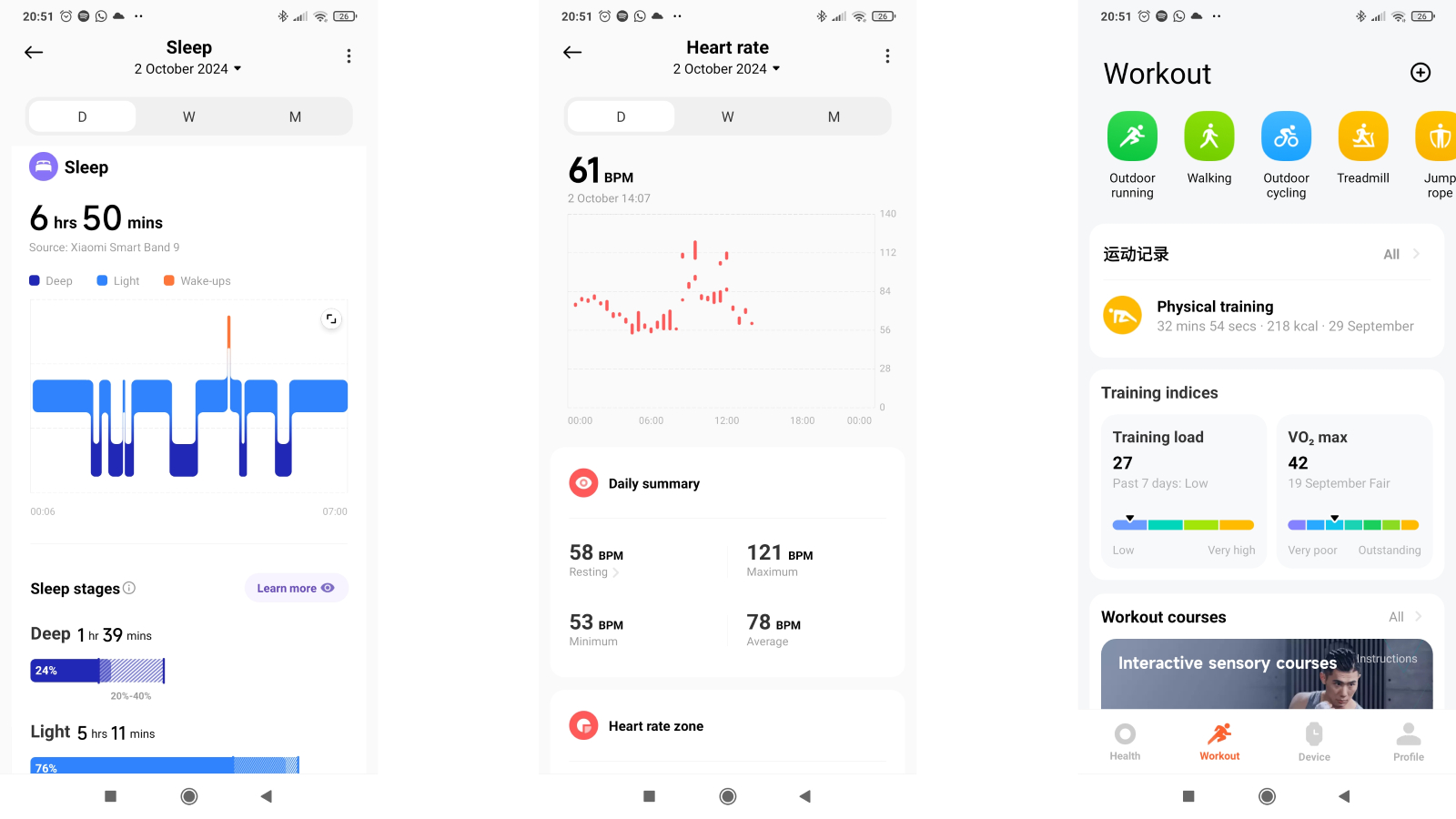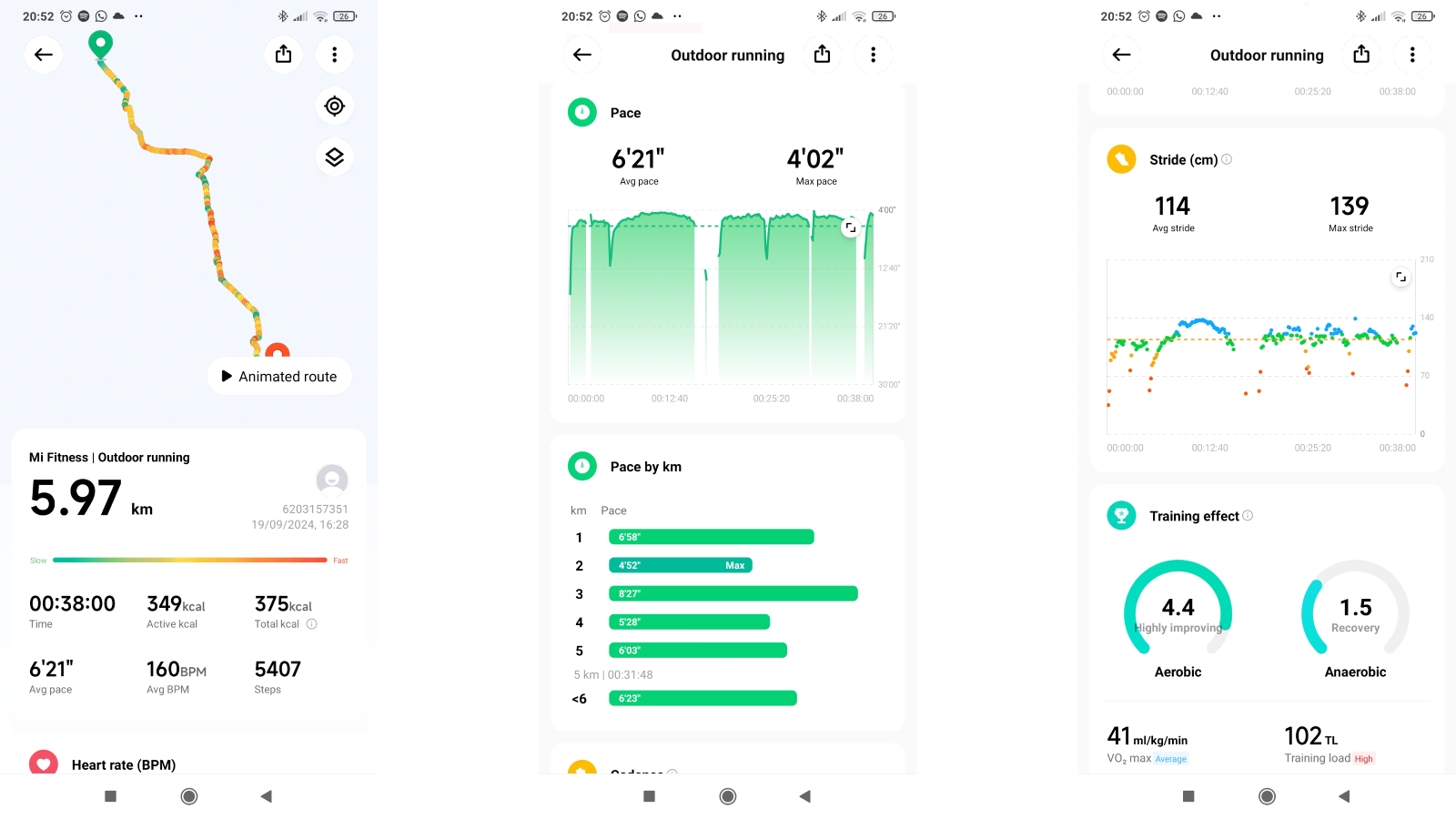Xiaomi Smart Band 9: One-minute review
Not many tech brands are as prolific in making cheap fitness trackers as Chinese giant Xiaomi; the brand cut its teeth on making inexpensive alternatives to top-end smartphones, tablets, and smartwatches, and it’s the same with gadgets like the new Xiaomi Smart Band 9.
The second of its budget fitness gadgets released in the West in 2024 after the Smart Band 8 Pro, the Smart Band 9 doesn’t compete with the giants of the wearable world in terms of specs or features. The Xiaomi won’t go head-to-head with your Apple Watches, Garmins, or Fitbits in terms of health monitoring.
Instead, the Xiaomi Smart Band 9 offers a useful core of features at an impressively low price. It’s the cheapest fitness tracker that I could find sold online from a brand I’d ever heard of, and it dramatically undercuts some big-name rivals such as Fitbit.
These core features include sleep tracking, step counting, heart rate monitoring, and calorie counting; turn on certain sports modes and you get a lot more. The results are reasonably accurate too, although it’s not pinpoint precision, and there is no GPS offered.
You can also use the Xiaomi Smart Band 9 as a smartwatch-lite, with notification handling, music control, and weather reports. A few rough edges in this area reflect the price: notifications could be buggy, initial pairing was tricky, and raise-to-wake didn’t always work as intended. But my annoyance would wear off when I remembered the price, and most of the time it worked fine.
As affordable fitness trackers go, this is one of the best on the market right now, but it’d be best enjoyed by people who haven’t tested others. It’s a great entry-level option for people who are new to the health monitoring game and want to test out a gadget to do so, without breaking the bank.
Xiaomi Smart Band 9: Specifications
| Component | Value |
| Price | $60 / £34.99 / AU$79.99 |
| Dimensions | 46.5 x 21.6 x 10.9 (mm) |
| Display | 1.62-in AMOLED display |
| GPS? | No |
| Battery life | 21 days |
Xiaomi Smart Band 9: Price and availability
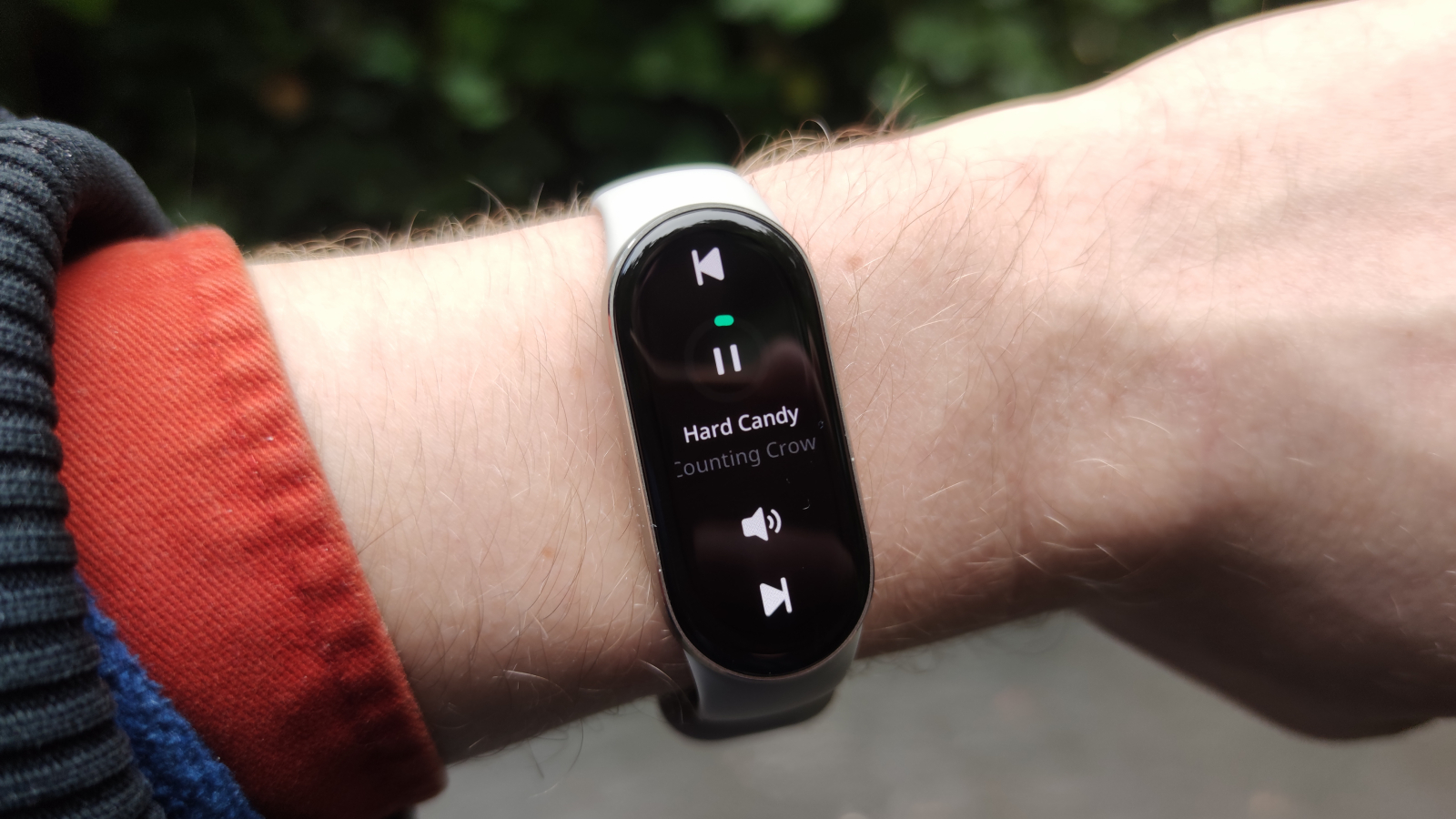
- On sale now
- Goes for $60 / £34.99 / AU$79.99
- Undercuts most rivals but not the post-discount Band 8 Pro
The Xiaomi Smart Band 9 was released in late September 2024 alongside a few other gadgets from the company, which included a redesigned Xiaomi Watch 2 and the Xiaomi Buds 5.
You can pick up the tracker for $60 / £34.99 / AU$79.99, so this falls decidedly into the catchment area for our list of the best cheap fitness trackers. The cost represents a slight price hike of $10 in the US, though in the UK and US, it hasn’t changed in price.
At that price the Smart Band 9 easily undercuts our best-in-class Fitbit Inspire 3 as well as other rivals like the Huawei Band 9, Samsung Galaxy Fit 3, Honor Band 9, and Amazfit Bip 3 Pro. If you’re looking for an affordable wearable from a respected tech company, this is one of the cheapest you’ll find before you venture onto the dark side of Amazon.
The only thing it doesn’t undercut is its predecessor, the Xiaomi Smart Band 8 Pro. That launched earlier in 2024 for $99 / £60 / AU$95 but only six months on from its release, I’ve found it from multiple retailers at half its launch price. This chunky fitness tracker is the Band 9’s biggest rival, and I’ll look more at this competitor right at the bottom of this review.
Xiaomi Smart Band 9: Design
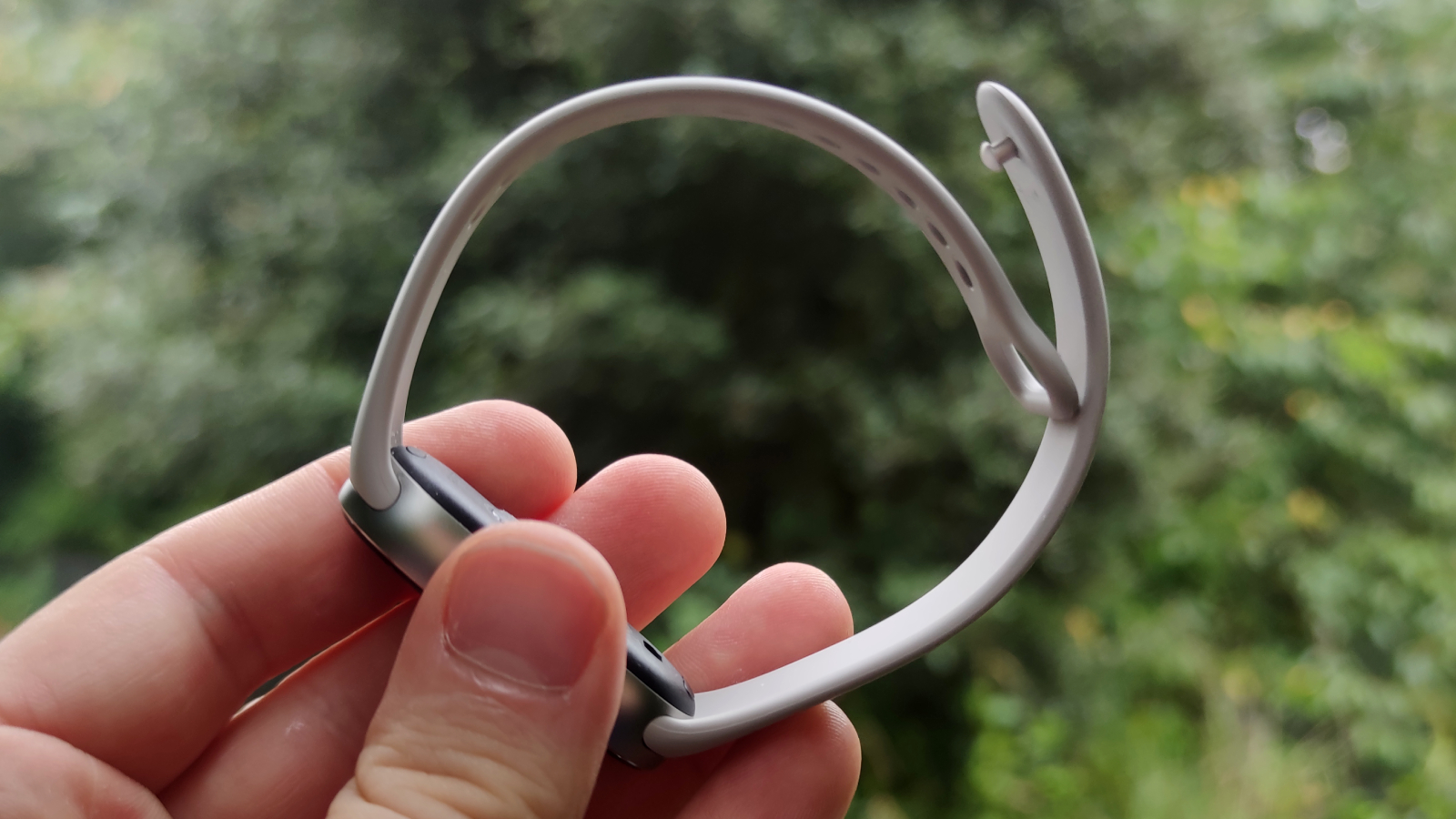
- By-the-numbers fitness tracker
- Bright 1.62-inch AMOLED screen
- Band is TPU but other options on sale
Experienced fitness tracker customers will find no surprises in the Xiaomi Smart Band 9.
The screen is a 1.62-inch AMOLED panel with a 192 x 490 resolution, 60Hz refresh rate, and 1200 nits max brightness. This latter is a big upgrade over past models and it makes it easier to see the screen in direct sunlight. Automatic brightness has also seen an upgrade and I never found any issues with its performance, which is the best testament to its efficacy.
I’ve previously had issues with Xiaomi bands (and other fitness trackers) struggling to pick up touch, especially if my hands were wet, but that wasn’t the case for the 9th-gen model. I found the screen wonderfully convenient.
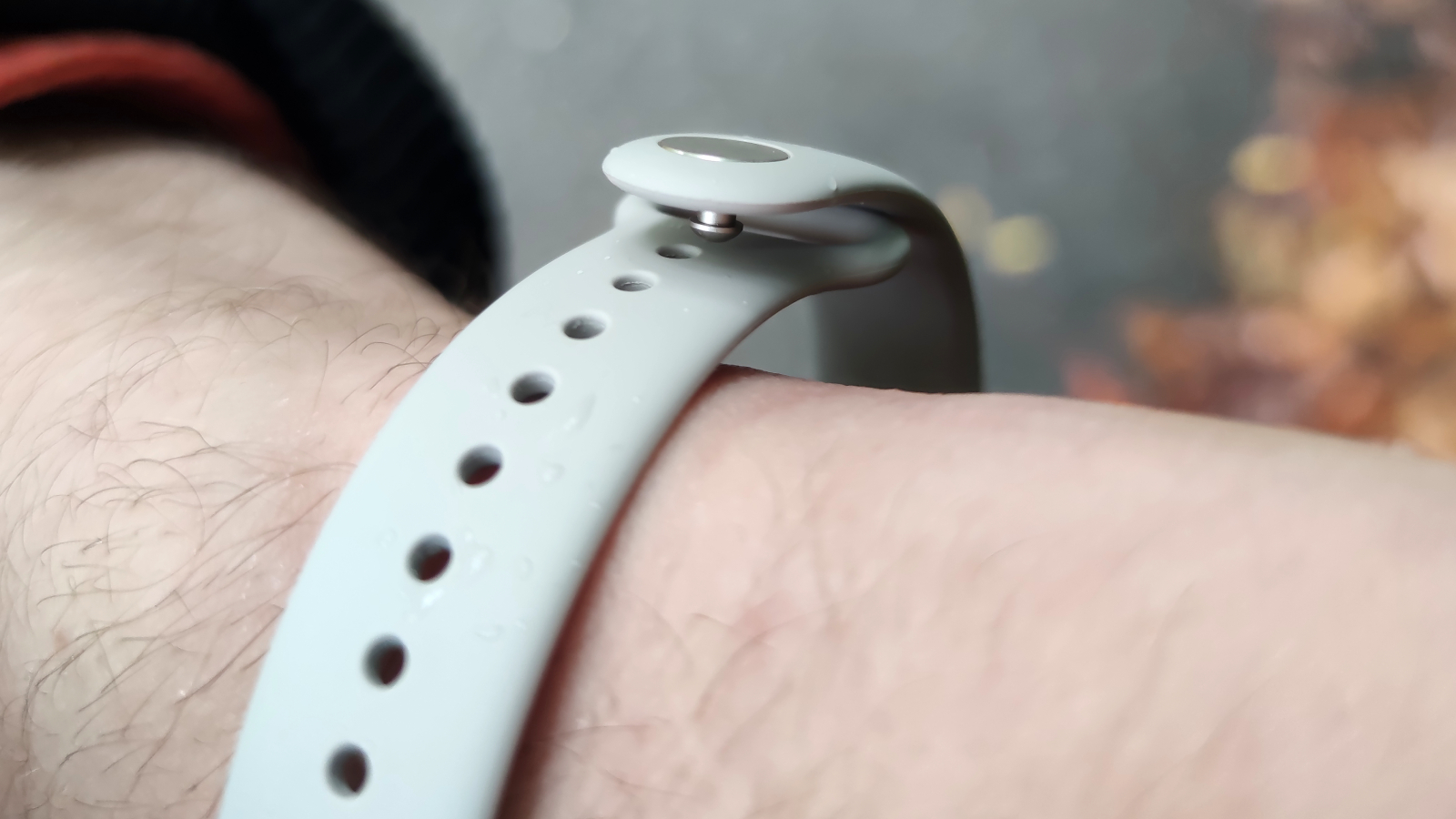
Some may find the lack of any physical buttons a little confusing, but it’s easy to get used to a solely gesture-based navigation system.
The band’s body measures 46.53 x 21.63 x 10.95 mm and weighs 15.8g, and it’s made of aluminum, unlike some past models. This makes it feel nice and sturdy, and its 5ATM water resistance ensures it won’t get damaged from submersion in water. It’s also one of the smaller fitness trackers I’ve tested, which will be good news for people who don’t like bulky wearables.
A few different color options for the Smart Band 9 are going on sale depending on the region – black, silver, light blue, rose and gray options are all available with straps that match.
The band Xiaomi sent me had its default TPU strap which you can see in the images, as well as a magnetic loop one. The former was a little fiddly to use when I was putting the watch on, but I found the latter would slowly slip during use, leaving me with a slightly looser band. As a result, I ended up using the default band most – Xiaomi launched the Smart Band 9 with a few different straps you can buy online, but I only tested these two.
Xiaomi Smart Band 9: Performance
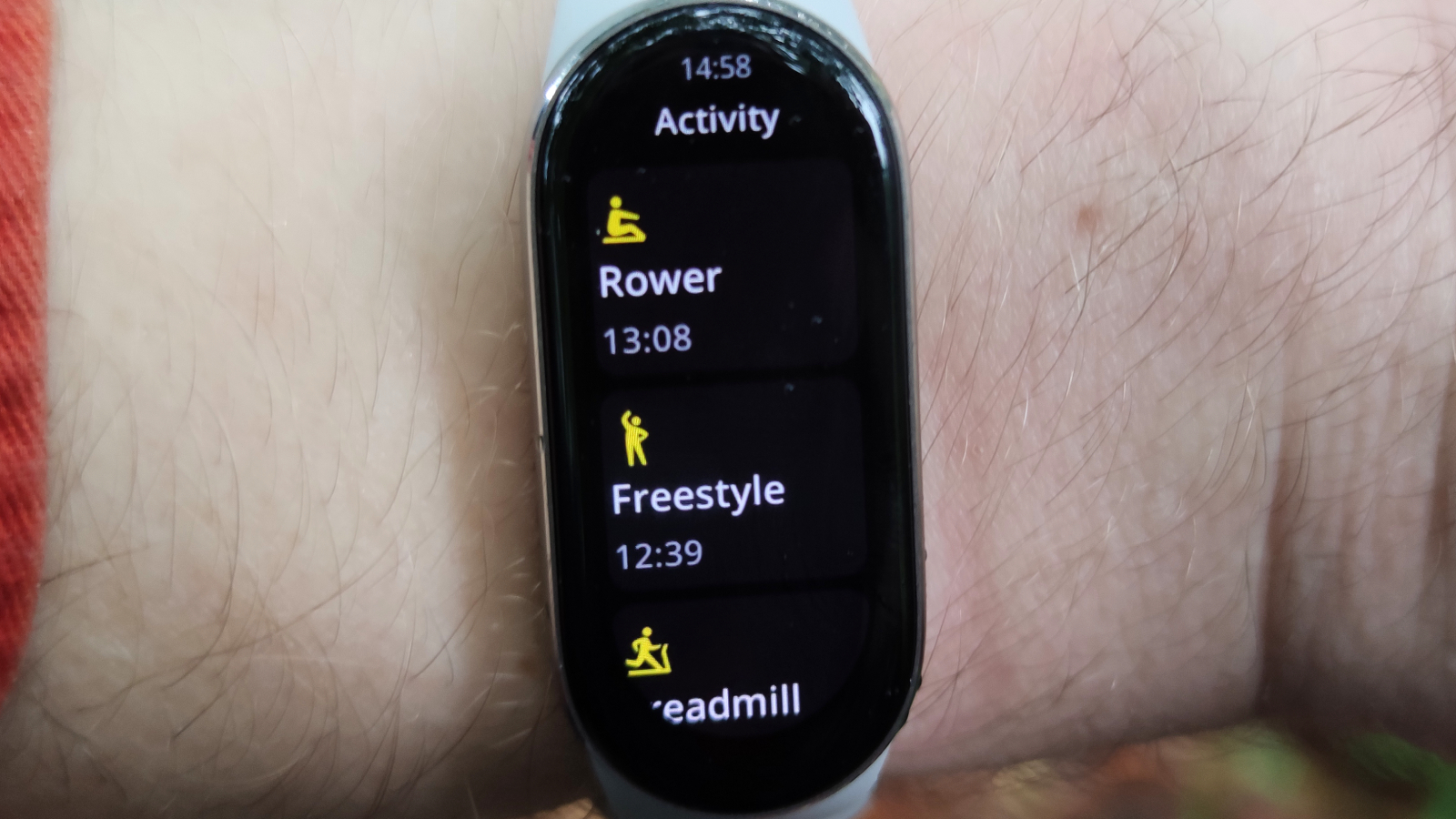
- 21-day battery life
- No GPS but heart rate and other trackers
- 155 fitness modes, varying in usefulness
According to Xiaomi, the battery life of the Smart Band 9 is 21 days – in my experience that’s almost accurate, as I reached 20, but with an above-average amount of workout tracking during that time in order to test the watch (including an 8-hour long run at one point, which barely dented the battery bar).
That’s a competitive battery life, with most rivals tapping out at two weeks or 14 days, so if you get battery anxiety this is the fitness tracker to get.
Looking at the fitness performance, as you can imagine for the price you’re not getting the most robust or razor-accurate tracking of all time, but I didn’t find it was ever way out.
GPS tracking is done using connected GPS to your smartphone, so you can’t ditch your mobile when going for a run or walk, and accuracy won’t necessarily be quite as high as with a GPS watch. However, it’s not wildly inaccurate either – after an entire marathon I was only several hundred meters off my companions’ more accurate devices.
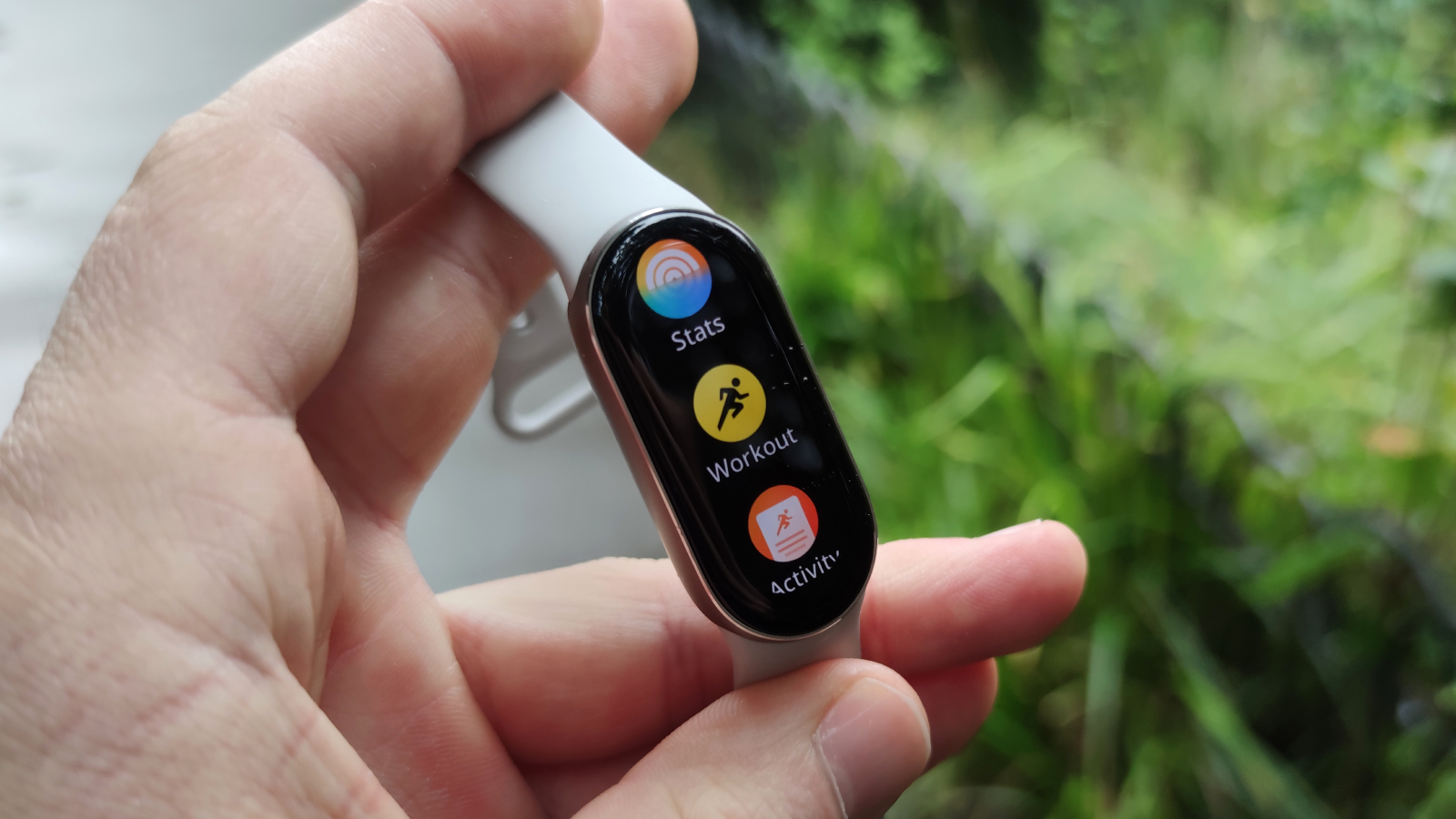
That theme of ‘in the right ballpark’ is reflected in the watch’s other tracking elements too. Heart rate, step count, and moving minutes all felt reasonably correct when compared to other devices. That wasn’t as true for sleep tracking, which sometimes errantly thought I was asleep when I was reading in bed. However its breakdown of sleep stages was useful, and it’s not something you can expect in all budget fitness trackers.
There are 155 fitness tracking modes by my count, which range in usefulness. Some, like running, indoor rowing, and swimming, provide useful information specific to the activity, but most purely measure time, calories burned, and heart rate. I won’t knock that though as I found the first and last useful during gym sessions to space my sets out.
Digging deep into the menus you can find some pretty odd workout modes like auto racing, chess, and mass gymnastics, but again these all just measure heart rate and time.
I’d recommend the watch most of all for runners, not only because it provides you with pretty in-depth information about your activity, but because of various ‘running courses’ which are basically interval training sessions. The watch will advise you when to run and at what speeds, which can be useful for people trying to build up their cardio.
Xiaomi also charts a ‘Vitality score’ which is a weekly points system to chart whether you’re doing enough exercise per week. It only seems to monitor logged activities though, so if you walk for 20,000 steps but haven’t set it up as an activity to measure, that’s nil points for you!
Xiaomi Smart Band 9: Features
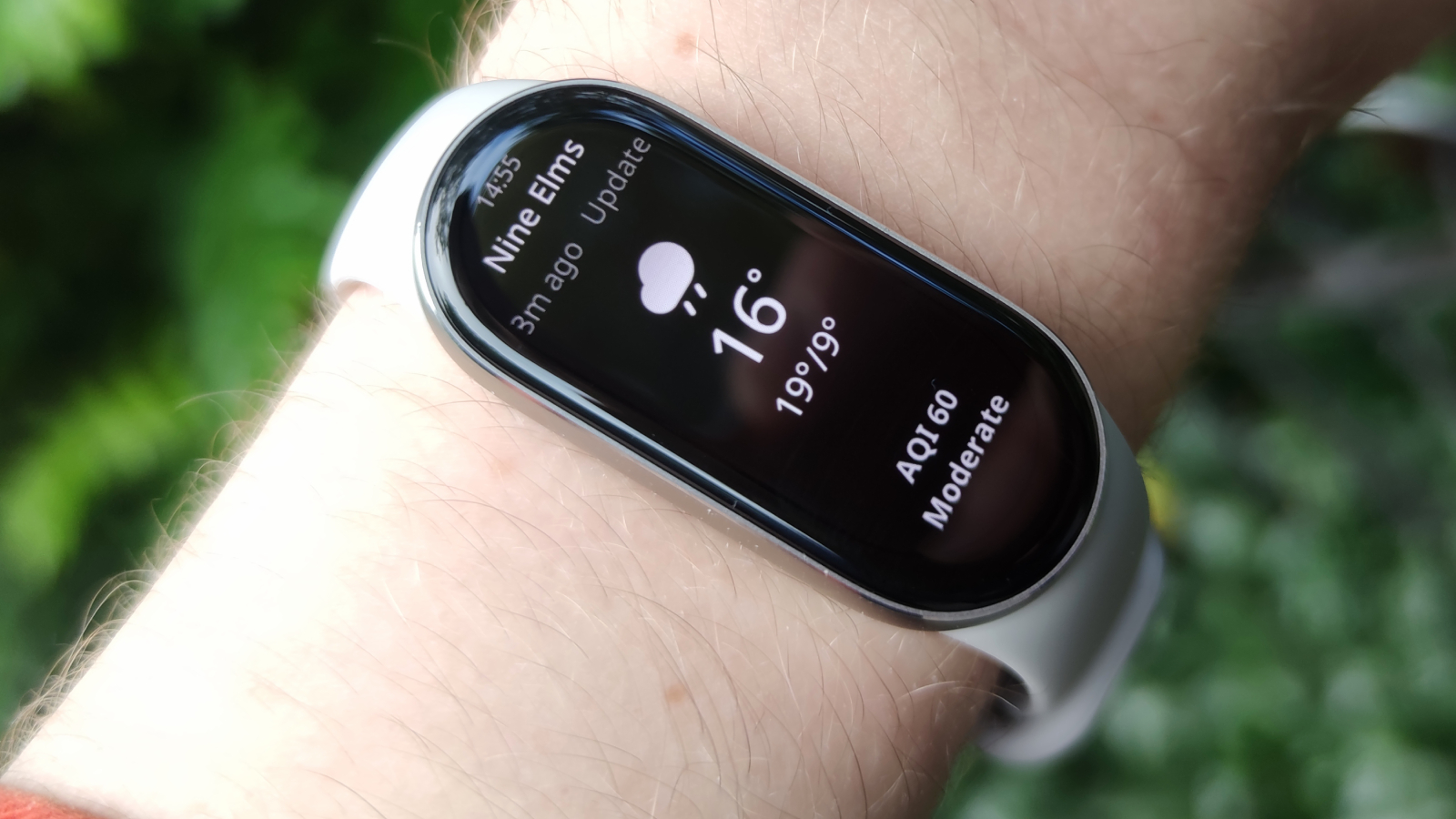
- Mi Fitness app used on phone
- Music playback, notification handling and more
- Some bugs with app and watch
You use the Xiaomi Mi Smart Band 9 alongside the company’s smartphone app, called Mi Fitness. Pairing the band and the phone was pretty fiddly, a fact I thought could be down to my own ineptitude until I realized that our Xiaomi Smart Band 8 Pro reviewer had the same issues with that device, which you can read about here.
Not only is pairing a pain, but some parts of the Mi Fitness app weren’t in English, as you can see from the images attached to this review. Otherwise, it’s a useful place to collect all your fitness data, including more than you can find on the watch itself.
You can also use it to change watch faces, and Xiaomi’s done a great job at creating some good-looking faces that collate all your data into one screen. I was taken with the one you can see me using in the review images – it’s easy to quickly scan for information.
Using your phone, you can set up some non-fitness features of the phone which are pretty useful. You can control music playback from your wrist (well, skip and pause tracks as well as change the volume, but you can’t hunt through Spotify for the perfect running track). You can turn on an alert on your phone if you’ve lost it, activate Do Not Disturb from your wrist, and check the weather.
A feature that should be useful is notification alerts, so your wrist will buzz if your phone gets a notification. It’s handy if you get an important email or text but the band wasn’t always fantastic at handling them. Sometimes it’d repeatedly give me alerts for persistent notifications (ie notifications about the weather, or WhatsApp telling me it was checking for new messages) or send me individual notifications for new texts in busy group messages, instead of bundling them together as some other fitness trackers do.
My most annoying incident with notifications was at 6 am one morning. The fitness tracker had apparently decided I was awake, and so was able to take incoming alerts – I wasn’t, but its constant buzzing with new notifications changed that soon enough! Perhaps this is more an issue with the sleep tracking than the notification system, but it fits in here.
Another issue I found is that the watch’s raise-to-wake (which turns on the display when you turn it to face you) only worked about half the time. I often had to tap the display to see the time.
These gripes may sound annoying, but I’ve been testing cheap fitness trackers for years, and overall the experience of using the Smart Band 9 was a lot smoother than I’m used to – it’s just not perfect.
Xiaomi Smart Band 9: Scorecard
| Category | Comment | Score |
| Value | A super-low-cost fitness tracker that undercuts most rivals. | 4.5/5 |
| Design | A by-the-numbers fitness tracker with a nice-looking display | 4/5 |
| Performance | A mixed bag of fitness modes with no GPS but other metrics tracked. | 3.5/5 |
| Features | Other than a few bugs, the watch and Mi Fitness offer useful features. | 3.5/5 |
Xiaomi Smart Band 9: Should I buy?
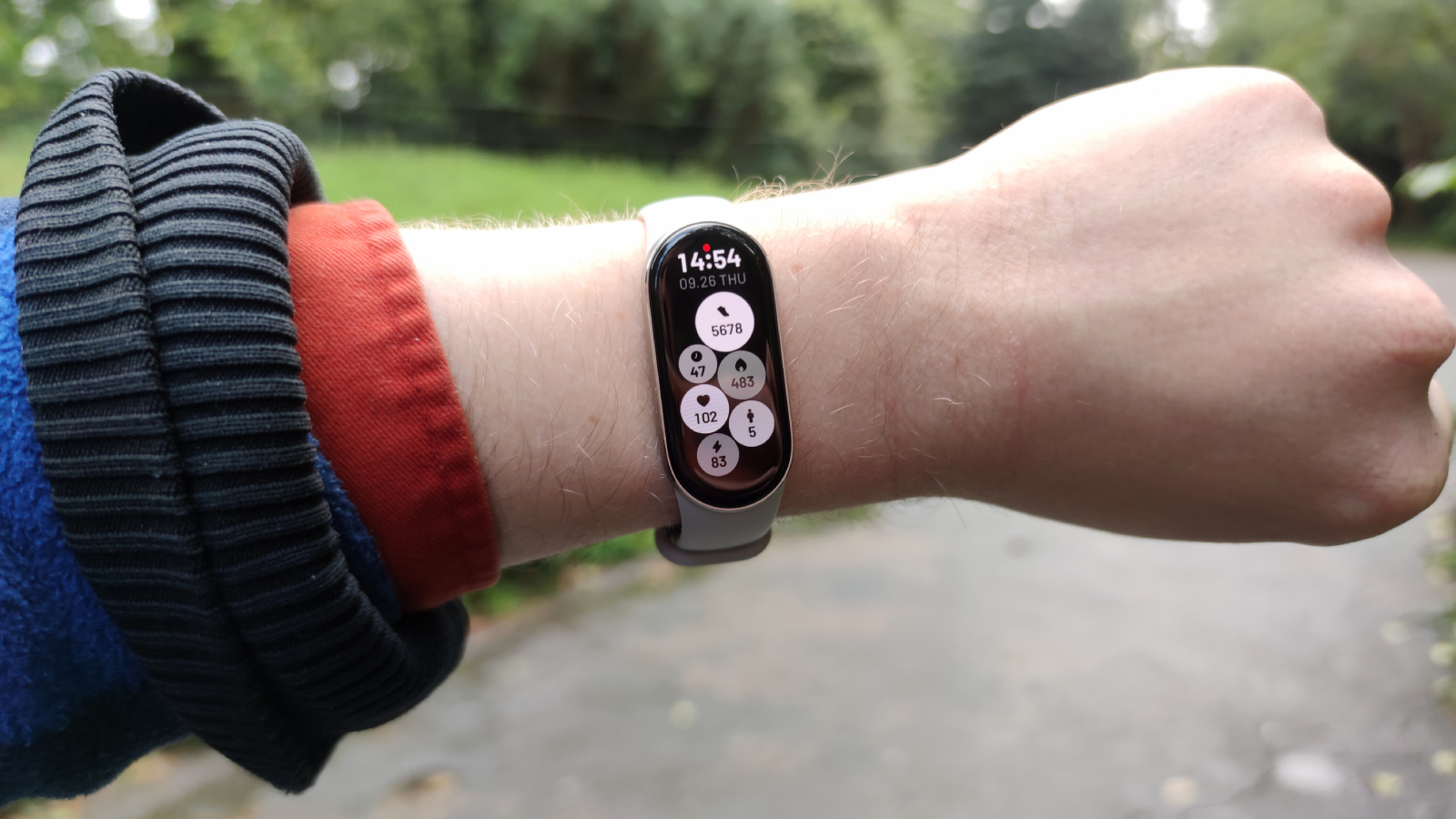
Buy it if…
Don’t buy it if…
Also consider
| Component | Xiaomi Smart Band 9 | Xiaomi Smart Band 8 Pro | Fitbit Inspire 3 |
| Price | $60 / £34.99 / AU$79.99 | $79.99 / £59.99 / AU$95 | $99.95 / £84.99 / AU$177. |
| Dimensions | 46.5 x 21.6 x 10.9 (mm) | 48 x 22.5 x 10.99 (mm) | 39.32 l x 18.6 x 11.75 (mm) |
| Display | 1.62-in AMOLED display | 1.74-in AMOLED display | 0.7 in AMOLED touchscreen |
| GPS? | No | Yes | No |
| Battery life | 21 days | 14 days | 10 days |
